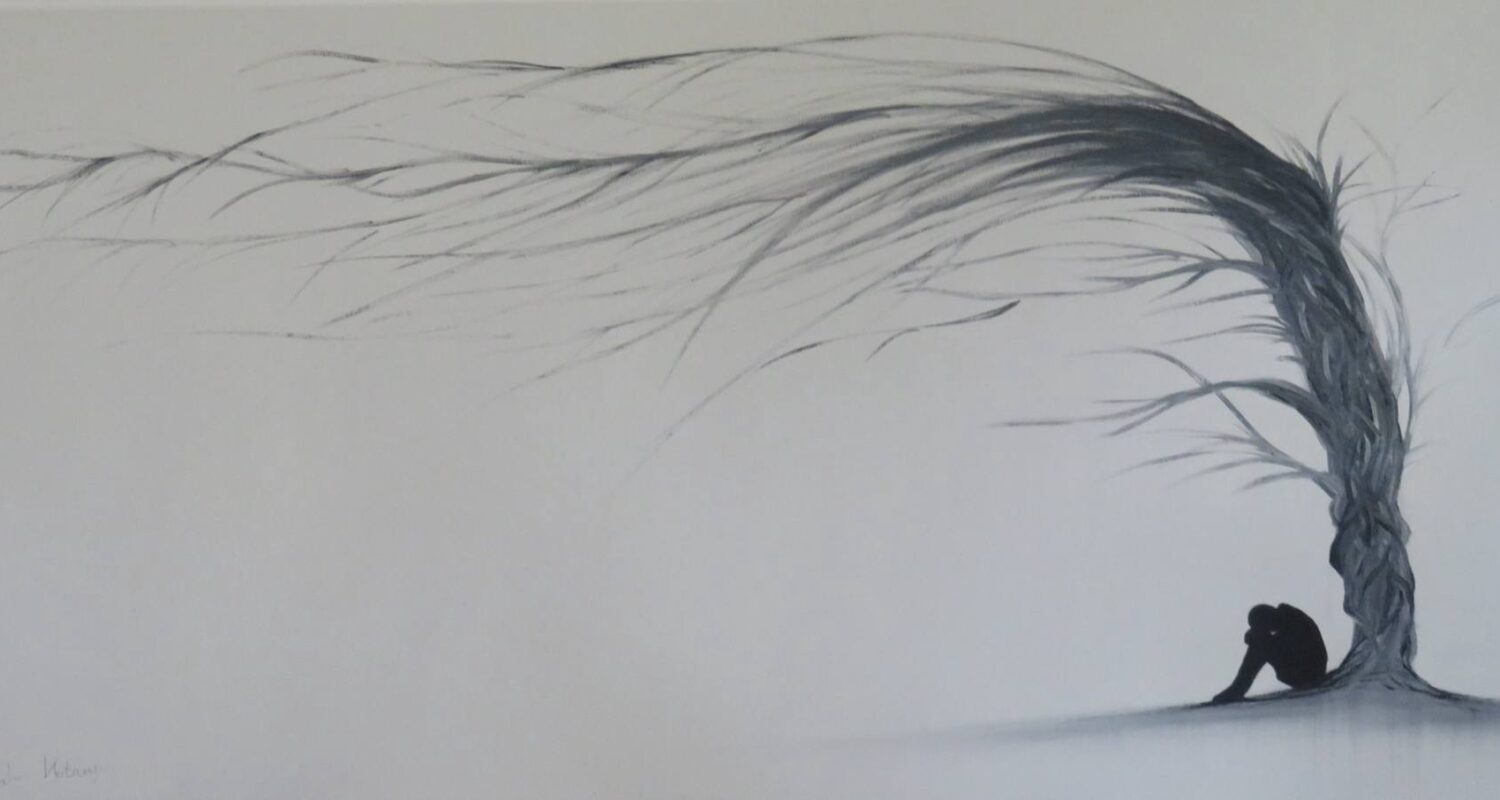
FACING RAMADAN WHILE GRIEVING…
The rhythmic cycles of the world do not stop for anyone or anything, so you deal with loss by carrying it through both the literal and metaphorical seasons of life. Some of these seasons, however, provide windows of opportunity to nurse your grief, and Ramadan is a particularly opportune one in this regard.
When your soul is already worn down with the unspeakable pain of loss, Ramadan provides a doorway to sit with your heartache within a valley of intense Divine Mercy. This month is all about stripping away the noise, distractions, and mental debris that collect within us, and returning to a primordial – yet vulnerable – state. During Ramadan, we are more cognizant of our own mortality, and somewhat strangely, more comfortable with it too. Experiencing the loss of loved ones powerfully reminds us of the reality of death in a way that reading hundreds of books on the subject never could.
When you witness the departure of someone you love, the transition to the Hereafter instantly feels closer, more immediate, and more possible for you. You wonder what they saw, what they experienced, in what form the Angel of Death came to them, and more. You think of the actual moments of their death – perhaps you were present – and how you shared the room with the Angel of Death. He carried out his service at an appointed time as commanded per Divine Instruction. Unsettlingly, you reflect about how he also has an appointment booked with you, too – something we may be more keenly aware of as the fasting of Ramadan awakens us to our limitations.
For all the bravado, energy, and boldness of our day-to-day life outside the month, Ramadan shows us what we are reduced to when we go a portion of our day without food and drink. This vulnerability in the human condition laid bare is universal, as no human being can sustain their own mortal shell and must rely on external provision to survive. The humility this should inculcate within us averts our focus back to the One who continually provides for us each and every moment of our conscious and unconscious existence.
For the grieving person, Ramadan allows the pain of loss to meet with heightened spiritual introspection, culminating in a bittersweet experience. It is a moment where one is granted the mental and spiritual space to sit with one’s loss to try and place it within the divine order of life. Ramadan provides a vehicle to load up with the heaviness of your heart and set out on a journey to reach Allah. The pain you feel may now be a permanent fixture of your internal landscape, even if time might dull some aspects of it. The loss will forever define you and there is no escaping this reality. What you do have control over, however, is what you use that pain as a conduit for and where you allow it to take you.
There are unique opportunities to channel the transformative experience of loss and use it as a catalyst to invite the abundant blessings of this month:
– Engage in conscious duʿā
Duʿā is an especially intimate act when performed with presence of heart and stillness. It is unlikely that there is any other human being who fully appreciates what your loss means to you, and certainly no one who wields the power to relieve its pain. Therefore, articulating the state of your heart to Allah is not only the most rational thing to do, but also a matter of your heart’s survival. In the act of actually verbalising how you feel and asking for relief – and for strength and the ability to bear your circumstances – you have already secured Divine care for your soul.
Set aside specific times when you commit to raising your hands and speaking to Allah about your pain in a state of absolute vulnerability. Ramadan is replete in Divine Mercy that descends at this time including the specific times when we know supplications are more likely to be accepted such as the time of breaking the fast, the last third of the night, and an hour between ʿAṣr and Maghrib on Jumuʿah.
When you ask, ask big. Ask not only for a reunion with your loved ones who have passed in the best of places, but ask for eyes and a heart that can see His Mercy in all things. Ask for His Blessings to pour into your own life as a result of patiently bearing the trial you are in. There is nothing too big to be asked of Allah, so think big and ask with determination and certitude. Allah is shy to return the hands of His supplicating slave empty, so when you do raise them, have certainty that He will fill them with an abundance of Divine Provision.
– Give ṣadaqah jāriyah for their sake
The connection between you and the one you have lost does not end with the end of their worldly life. They have merely passed through one stage in a longer journey, and you still have the ability to benefit them despite their having passed on.
On the authority of Abū Hurairah (raḍiy Allāhu ʿanhu), the Messenger of Allah (sall Allāhu ʿalayhi wa sallam) said, ‘When a person dies, his deeds come to an end except for three: Ṣadaqah jāriyah (a continuous charity), knowledge from which benefit is gained, or a righteous child who prays for him’. (Muslim)
We have been given the tools to transcend the boundaries between this life and the next through ongoing charity that can bring relief and reward even after death. Your ṣadaqah jāriyah does not necessarily require a huge financial investment, only a firm intention and active effort. From digging a well for thirsty people to supporting the education of children in impoverished communities, Ramadan presents not only the opportunity to attain further rewards for normally multiplied good deeds like charity, but there is also the increased generosity of fellow Muslims during this month to take advantage of.
Ṣadaqah jāriyah gives you a practical, active, and pragmatic means to put into motion a blessed legacy for your loved one. It is one that you both will find delight in as you witness the abundance of ongoing reward when you finally meet again in the Hereafter.
– Instil active gratitude for what remains
Gratitude is not only about looking back, but also about taking stock of life now including the people you are still blessed to have. The time we have with one another and our families is limited, and so we should see this narrowing window of time for the immense blessing that it is. Losing someone you love forces you to see time like a clock running down with each passing day. One day you may look back on your life now and consider it the best time of your life, so actively look for the blessings that remain and truly enjoy and experience them with a sense of active gratitude. Tell the people you are sharing Ramadan with that you are grateful to have them in your life. Say the things people need to hear, but so often don’t. Make what remains meaningful and fill it with love and presence. You will never look back and regret strengthening your closest relationships, so use this month of heightened awareness to increase in gratitude for the blessings we so often take for granted.
*
This year, take Ramadan and use it as a balm to soothe the anguish you carry. As the loss of your loved one has already shown you the fleeting nature of this world, take that knowledge and combine it with recognition that this month contains great opportunities to exercise gratitude and draw nearer to Allah. Like everything in life, this Ramadan will come and go with startling speed. So, strive to extract every drop of nourishing mercy you can from the heavy clouds of Divine relief this month. The pain of loss you carry now may well be what earns you entry into His Everlasting Mercy, where there will be no such thing as pain or separation ever again.



